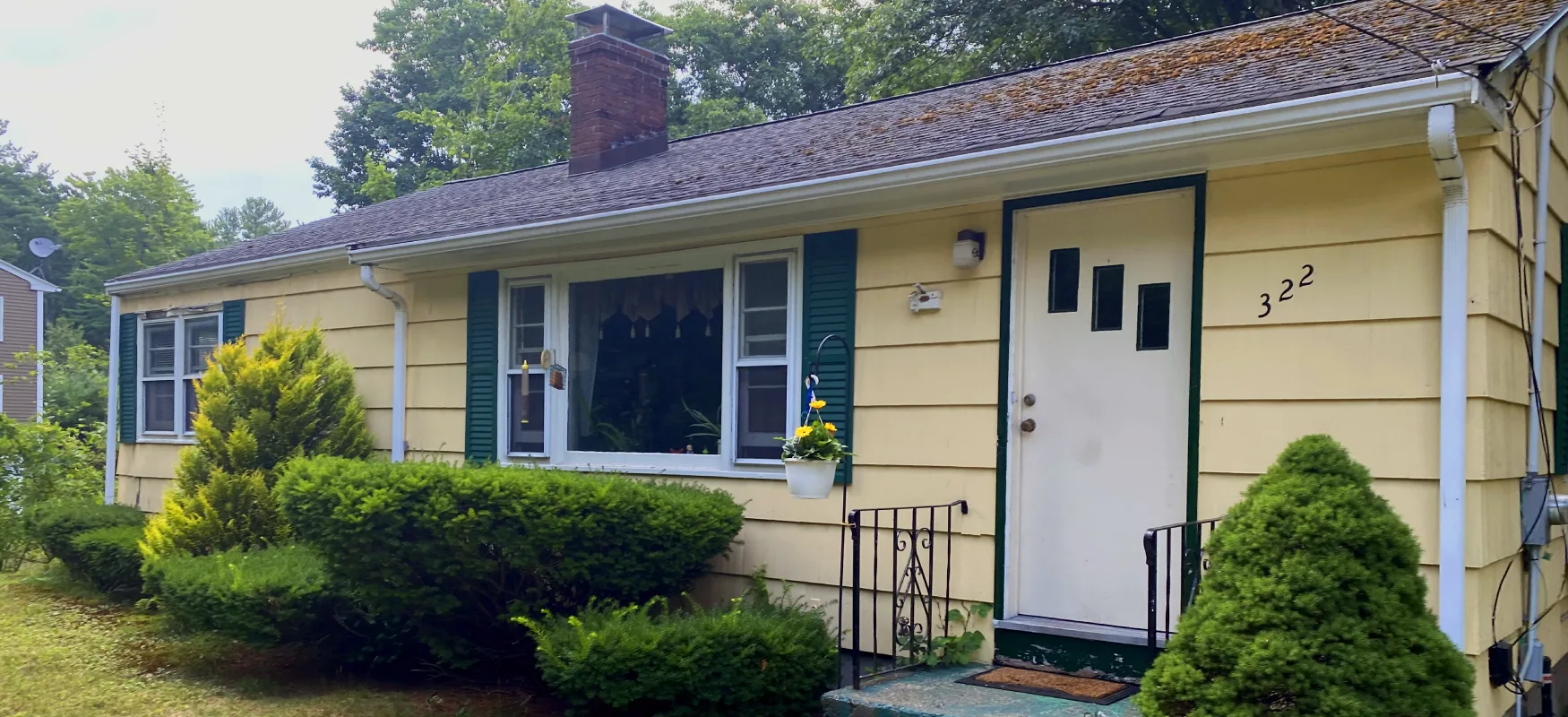Selling a home with unpermitted work in Massachusetts can be challenging, but it’s far from impossible. With the right strategies, legal knowledge, and negotiation tips, Turning Point Home Buyers can help you navigate the process confidently and close the deal successfully. This guide covers everything you need to know to move forward with peace of mind.
Selling a House with Unpermitted Work
Having unpermitted work on a property makes selling a house in Massachusetts challenging, but it does not make it impossible with proper readiness. Unpermitted work is defined as any renovations or additions undertaken without first securing the necessary permits from the Massachusetts Building Authorities. Eliminating legal liability while increasing confidence from buyers makes a seller deal with any unpermitted work issues in the home description upfront.
When dealing with an unpermitted work home in Massachusetts, a buyer may ask you to complete the work, provide a buy-down deal, or demonstrate local code compliance using retrospective licensing. Fixing unpermitted work before listing such as inspecting the property and talking to local officials makes everyone’s life easier. Avoiding unpermitted work challenges early guarantees a streamlined home selling process with less off-the-scope complications or inconveniences.
How to Address Unpermitted Work Before Listing Your Home
Prior to selling a home in Massachusetts with unpermitted work, it is crucial to take steps to correct or properly disclose any discrepancies. It is important to first determine the type of unpermitted work—whether it is electrical, plumbing, or additions—and discuss it with a qualified contractor or home inspector. They should help offer insight on the various code compliance issues that add value to a home and determine what needs to be done. Your local Massachusetts building department can also provide information on what needs to be done to code, including retroactive permits and fees.
Honesty is the best policy when it comes to selling a home with unpermitted work done in Massachusetts. Trust legally mitigates overall risk. In some instances, it is even possible to work with clients on covering some of the repair costs which helps them lower their quote. Unpermitted work done needs to be explained, making the home more marketable, therefore serving the goal of lowering the time spent in the market buying and selling a home.
Navigating Building Permits and Inspections in Massachusetts Real Estate
California housing codes are relatively more lenient compared to other states, but the fact remains that obtaining building permits and performing inspections is serious business. One common issue that heavily impacts permit applications and housing inspections revolves around unpermitted work done in a Massachusetts home, said work severely impacts the value of a house in question, alongside its resale value and practicality.
Most of the time, changes or updates done to an already existing home require what is known as ‘retroactive permits’. This type of permit helps level the discrepancies between a home and the housing code guidelines issued by the state. These types of permits are rather difficult to obtain, and since they are quite literally a step behind the targeted goal, they can easily mislead a person chasing them towards an improperly defined end goal. However, their implementation means simplified inspection and negotiation alongside a far easier closing process to smooth away problems posed to both buyers and sellers.
Legal Implications of Unpermitted Renovations in Massachusetts
There are serious legal implications when selling a house in Massachusetts that has unpermitted work done. In Massachusetts, selling a home comes with the legal obligation to disclose construction within the property. If the required permits are not provided, the buyers may seek to cancel the sale. In Massachusetts, a seller bears the full burden of providing all descriptions of construction and renovation within the property lest they become involved in legal claims.
Unpermitted work also affects financing, since lenders might deny mortgages for homes with unauthorized renovations. Prior to their purchasing decision, buyers may expect price reduction negotiations or even demand that the sellers furnish invalidated retroactive permits**- these mandates invariably extend to closing negotiation stakeholders as well. Sellers in Massachusetts must deal with the possibility of fines and Massachusetts’ compliance costs associated with correcting housing changes without legal permission. It is essential to circumvent such legal challenges sooner rather than later when dealing with real estate lacking grants of territory.
Home Inspection Tips: Identifying Unpermitted Work in Your House
When selling a house in Massachusetts with unpermitted work, understanding how home inspections uncover these issues is essential. Here are key tips to identify unpermitted work before listing:
- Compare the current layout to official records: Look for extra rooms or altered structures that don’t match blueprints or property documents.
- Check electrical systems: Unlabeled wiring or missing permits can signal unpermitted electrical work.
- Inspect plumbing changes: Mismatched piping or unauthorized modifications often indicate unpermitted plumbing work.
- Look for missing ventilation: Additions without proper ventilation may not comply with Massachusetts building codes.
- Review compliance with safety and zoning laws: Ensure all work follows Massachusetts regulations to avoid red flags during inspections.
- Conduct a pre-inspection: Sellers should have their own inspection done to find and address unpermitted work before buyers’ inspections.
- Fix issues early: Addressing unpermitted work ahead of time can prevent sale delays and improve negotiation outcomes when selling a house in Massachusetts.
By proactively identifying and addressing unpermitted work before listing your Massachusetts home, you can avoid surprises during buyer inspections, increase your chances of a smooth and successful sale, and even sell your home for cash in Worcester or nearby cities.
Hiring Contractors to Rectify Unpermitted Work Before Selling
Your property in Massachusetts will require the skills of a licensed contractor to remedy any unpermitted work that may be done on the house. A seasoned contractor will ensure that all steps are taken according to the Massachusetts building code, paving the way for the home to be sold without any underlying issues.
Contractors rectifying unpermitted work boosts the credibility of sellers, allowing buyers to trust that due diligence has been carried out. Buyers are likely to be more confident about the sale proceeding unhindered if there are documents evidencing the rectification of the improvised work. Such changes will enable sellers to confidently declare having solved prospective problems while increasing the value of property in Massachusetts real estate.
Disclosure Requirements for Unpermitted Work When Selling Property
When selling a house in Massachusetts, it’s essential to disclose any unpermitted work to comply with state laws and build trust with buyers. Properly informing potential buyers about unpermitted renovations or modifications helps prevent legal issues and supports a smoother selling process. Key disclosure requirements for unpermitted work when selling a house in Massachusetts include:
- Sellers must disclose all known unpermitted work in writing, typically through the property condition statement.
- Full transparency about any renovations or additions without proper permits is legally required.
- Failing to disclose unpermitted work can result in legal consequences and financial liability for the seller.
- Sellers should carefully review their property’s history to identify any unpermitted modifications before listing.
- Clear communication about unpermitted work during negotiations helps avoid disputes and builds buyer confidence.
By fully disclosing unpermitted work when selling a house in Massachusetts, you can protect yourself from future legal problems, make the transaction process smoother for everyone involved, and even sell your home for cash in Boston or nearby cities.
Impact of Unpermitted Additions on Property Value and Saleability
In real estate in Massachusetts, changes like additions or renovations that aren’t permitted tend to impact the prospective price of the house as well as the ease of selling it. Unpermitted work raises issues of safety, legality, and code compliance; hence, buyers are generally highly concerned about these gaps. Such gaps might result in unpermitted homes being sold for a lower price and having a longer turnaround time compared to homes with proper permits.
Sellers in Massachusetts face aggressive price cuts or harsh conditions to remedy the gaps before finalizing the deal. Houses with unpermitted work tend to face a financing stall with lenders as well. Selling unpermitted work homes becomes easier and more profitable by obtaining retroactive permits or correcting the unpermitted work in order to maximize marketability.
Marketing Strategies for Homes with Previous Unauthorized Improvements
Selling a house in Massachusetts with unpermitted work can be tricky. But by being honest about the unpermitted work and using smart marketing, you can attract the right buyers and sell your home successfully.
- Be transparent about unpermitted work: Clearly disclose any unauthorized improvements to build trust with potential buyers and comply with Massachusetts regulations.
- Highlight unique property features: Focus on how the unpermitted work adds value, such as extra living space or modern upgrades, to appeal to buyers looking for distinctive homes.
- Use professional photography: Showcase the best aspects of the house with high-quality images to attract more interest online and in listings.
- Work with a knowledgeable real estate expert: Partner with an expert experienced in Massachusetts homes with unpermitted work to help navigate disclosures and negotiations smoothly.
- Target investors and fixer-upper buyers: Market to buyers who see unpermitted work as an opportunity to customize and increase the home’s value.
- Emphasize location benefits: Combine the appeal of the home’s neighborhood with the potential unlocked by the unauthorized improvements to increase buyer interest.
Selling a house with unpermitted work in Massachusetts doesn’t have to be difficult. Understanding the process and using effective marketing strategies can help you sell your home with confidence.
Financial Considerations When Correcting Unpermitted Work Pre-sale
If you are selling a house in Massachusetts with unpermitted work, understanding the costs associated with correcting the issue is vital before selling the home. Rectifying unpermitted work usually entails paying for backdated permits, hiring certified professional contractors, and paying for inspections and construction. All of these expenditures, while certainly accumulating, are essential to ensuring that the home complies with Massachusetts building codes and is structurally sound.
Correcting unpermitted work increases the property’s value, making the home more appealing to a wider audience. The lack of unpermitted renovations increases buyer confidence, ultimately allowing the seller to sidestep price cuts or prolonged negotiations. Understanding the financial implications of unpermitted work on a home will be immensely helpful for sellers looking to maximize their profits.
Understanding Massachusetts Real Estate Regulations for Home Sellers
It’s no secret that Massachusetts can be difficult to navigate, especially when it comes to dealing with selling a house that has unpermitted work done. For home sellers, understanding Massachusetts real estate regulations is crucial to avert legal complications and facilitate effortless sales. Unpermitted work is something that can impact your property both valuably and marketably, so it is good practice to disclose all unpermitted changes made to the house.
Failing to follow state disclosure laws or correct unpermitted work before listing can cause delays or even stop the sale altogether. Sellers often need to get retroactive permits or fix code violations to stay compliant. At Turning Point Home Buyers, we specialize in helping Massachusetts homeowners successfully sell houses with unpermitted work by guiding them through local regulations and providing practical solutions to close deals quickly and confidently.
Need to sell a house with unpermitted work? Turning Point Home Buyers makes it easy by buying homes as-is, with no repairs, permits, or inspections needed. Whether you’re facing costly fixes or just want a quick, hassle-free sale, we offer fair cash offers and handle all the details for you. Contact us (978) 644-0366 today for a no-obligation offer and sell your house with unpermitted work the easy way.

